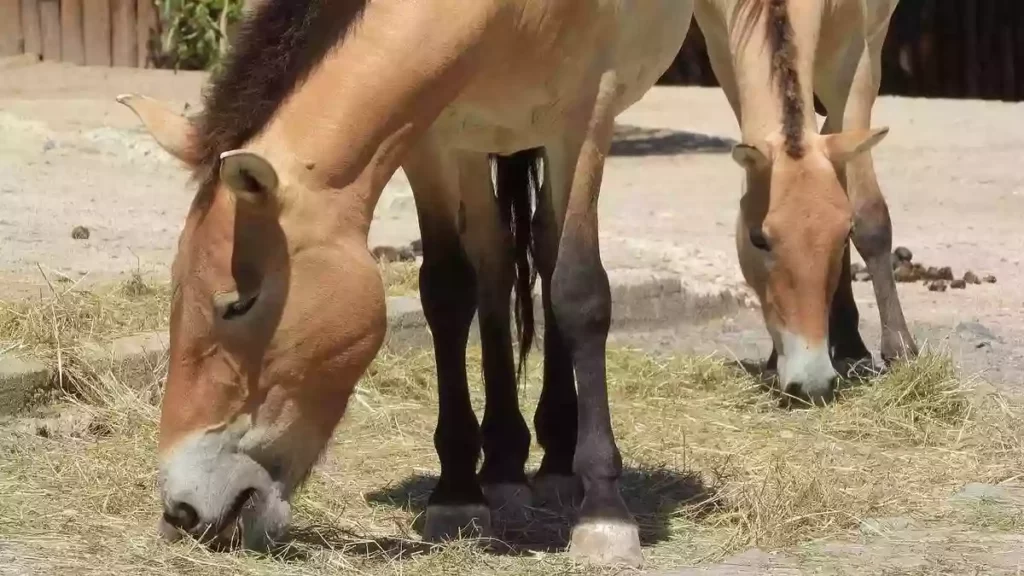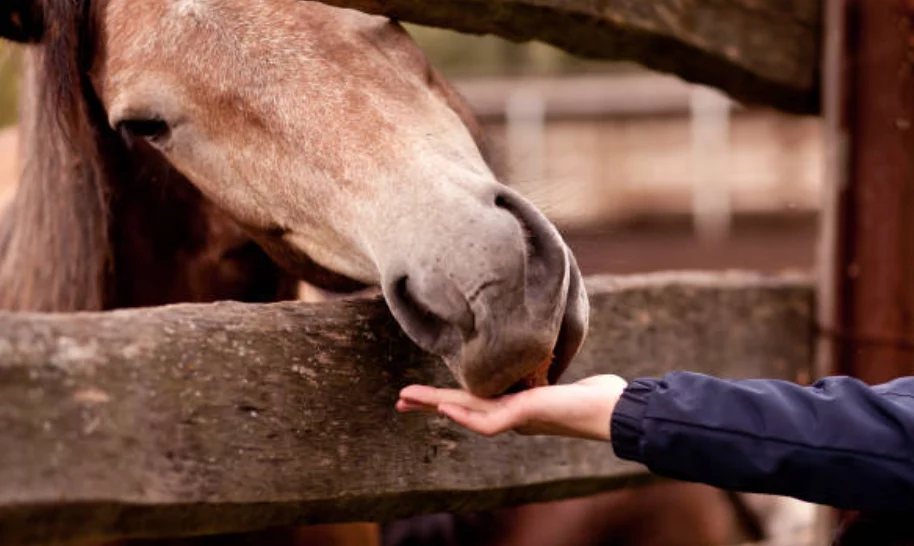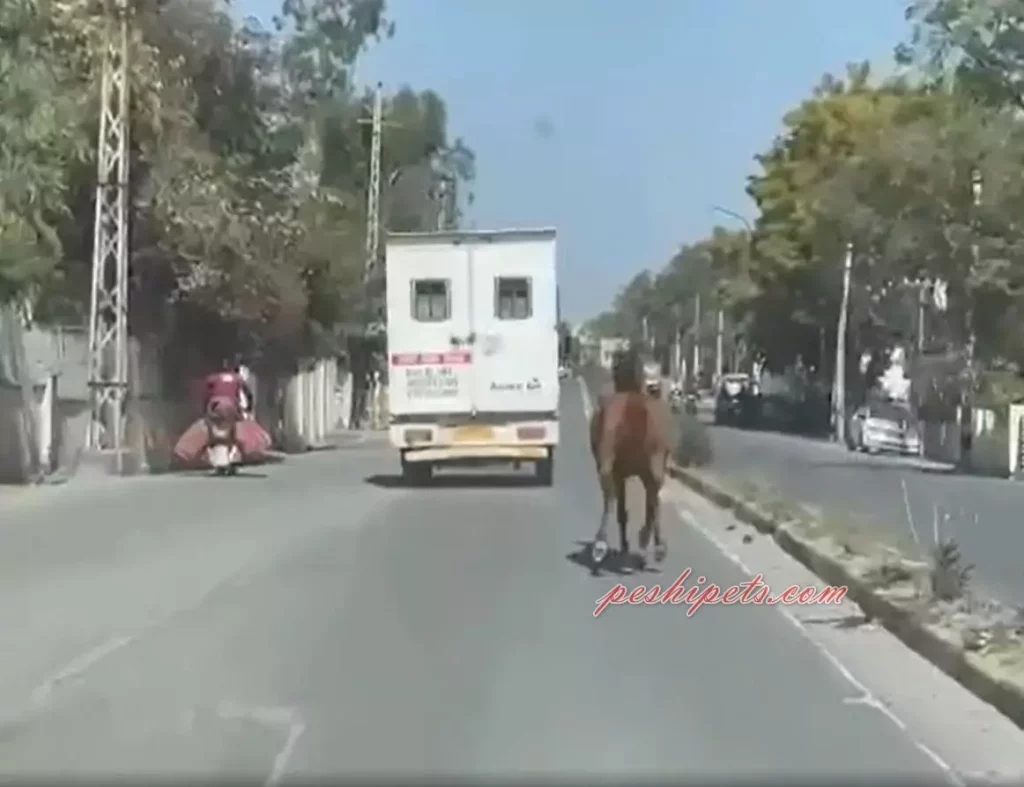Can Horses Eat Tomatoes? The horses eat anything from ice cream to sandwiches on roast food to apples. It’s perfectly fine for horse owners to give their equines treats from the kitchen, but tomatoes are one item horses should not enjoy in their barns.
The majority of horses do not like tomatoes and would not eat them. In contrast, there are other horses that may be less discriminating. Horse owners should therefore always be alert to any such changes. Here are some reasons why you should keep tomatoes out of your horse’s reach.
Can Horses Eat Tomatoes?
Table of Contents
The horse owner and the people who plan to get a horse are always curious about their suitable and harmful foods. Many people ask, Can Horses Eat Tomatoes?
The answer is, No, horses cannot consume tomatoes. Fruits or vegetables are fine for human consumption, but some fruits and vegetables can have a range of toxic effects on horses. This is because tomato is a member of the Solanaceae plant family, infamous for harboring toxic compounds, in this case, tropane alkaloids.
A group of tropane alkaloids that comprises over 200 known compounds includes atropine, hyoscyamine, and scopolamine. Together, these chemicals are responsible for the gastrointestinal and neurological symptoms observed in horses that are caused by tomato consumption. Scopolamine is believed to be the primary culprit.
There are numerous health implications ranging from dry mouth, pupil dilation, and increased heart rate to more serious conditions like constipation and reduced bowel motility. As a result of the latter, horses may develop hemorrhagic diarrhea or colic, both potentially dangerous conditions.
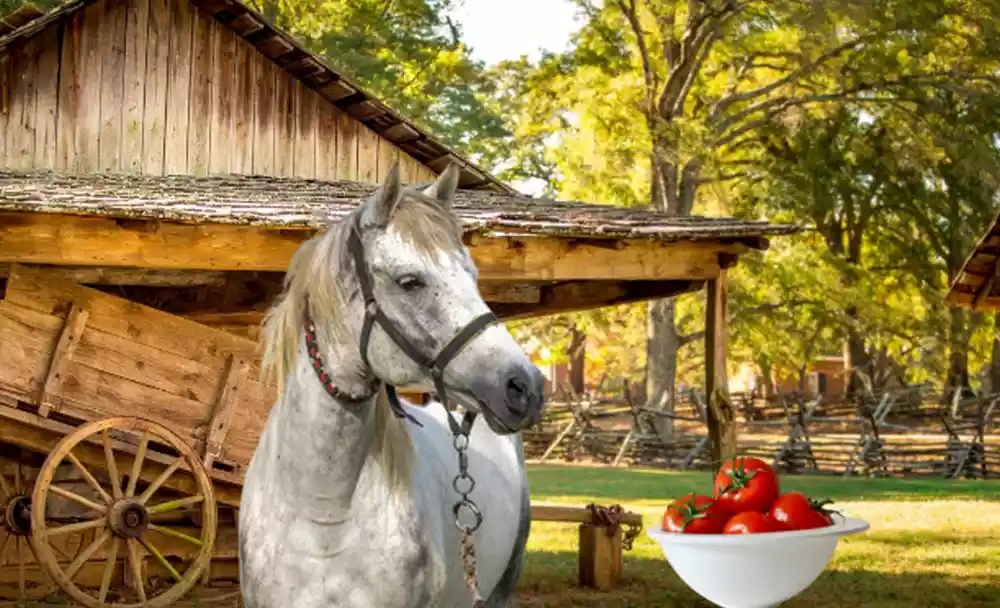
In comparison with other toxic nightshade plants, the tropane alkaloids concentration in this plant is lower. Thus, the horse would have to consume a large quantity of the food before it exhibits any toxic effects. The major compound in tomatoes is tomatine, which is fungicidal.
In addition to the leaves, stems and fruit are the areas with the highest concentrations of the chemical. Tomatoes, however, exhibit higher levels of concentration only while the fruit is still unripened or green and falls to insignificant levels once it has matured.
A horse does not like the taste of tomatoes, but the risk comes from the foliage. Especially on farms, an unaware horse may consume the tomato plant and receive serious health problems. Also, even though the fruit has a lower level of toxins, they are still present, and it is best to be cautious when dealing with toxins.
Recommended: Can Horses Eat Peanut Butter?
What Makes Tomatoes So Bad For Horses?
Despite their delicious taste and popularity as a cooking ingredient, tomatoes are harmful to horses. These fruits are part of the nightshade family like other harmful things such as chili, potatoes, bell pepper, etc.
Among the nightshade family, tomatoes contain potentially toxic alkaloids such as hyoscyamine, atropine, and solanine.
By slowing the movement of the digestive tract, toxic solanine, the poison in green tomato leafy parts, causes throat swelling and severe indigestion. Despite their primary focus on the leafy part, these contaminants can also exist in the fruit, and you should never attempt to feed this to your horses.
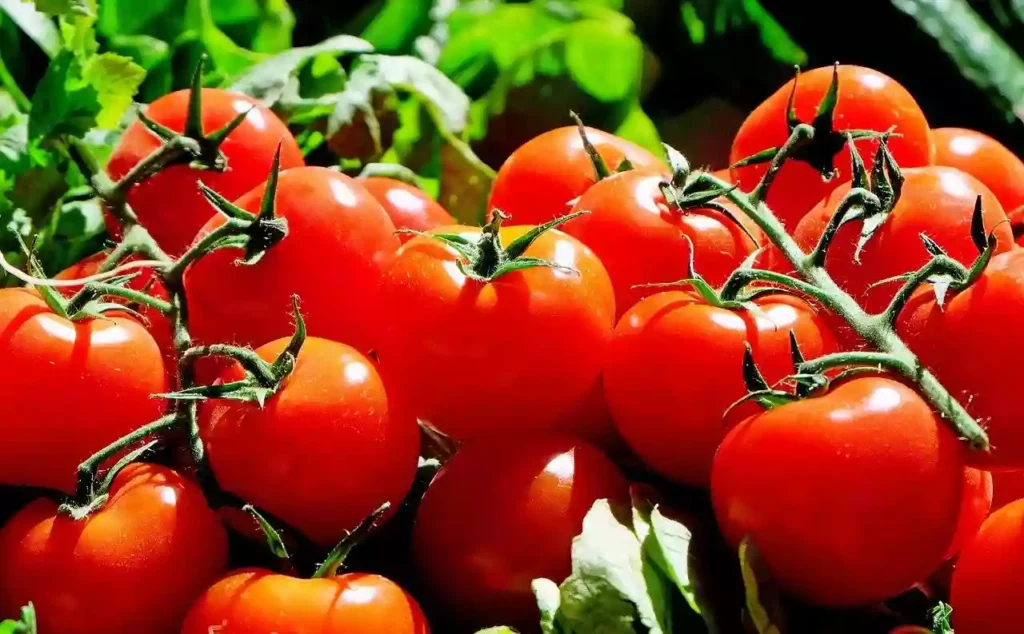
By disabling their salivary glands, affecting saliva production, and decreasing their intestinal mobility, hyoscyamine toxins in tomato fruit also affect horses. However, atropine toxins reduce gut mobility, something that may seem insignificant at first until your horse develops colic and the situation becomes much more alarming.
In contrast to cows, horses do not have compartmented stomachs. Therefore, their guts do not display a two-way system. Due to this, a horse that eats tomatoes can’t get rid of them as they can’t vomit or burp.
Signs and Symptoms of Tomato Poisoning in Horses
The best thing to do is to keep your horses from eating tomatoes. It is however important to know the signs if the fruit is accidentally ingested. Symptoms such as these are serious, and the sooner you catch them, the higher your horse’s chances of recovering.
Take a look at the following symptoms:
- Anxiety and depression are the most alarming signs of tomato poisoning in horses.
- Tomato poisoning causes low heartbeat and respiratory rate in horses.
- Horses drool excessively (drop saliva uncontrollably from the mouth) during this condition.
- Their muscles twitch and twisted during this condition.
- It can also cause some serious problems like blindness, weakness, imbalance, colic, and hemorrhagic diarrhea.
- In such cases, your horse won’t be able to stand up.
Prevention and Cure
Horses are not very fussy about what they eat, so they might get poisoned if they eat the fruits. In order to grow tomatoes on your farm, you’ll want to keep your horses as far away as possible.
In addition to tomatoes, horses should be kept away from other toxic nightshade family plants.
In most cases, horses suffering from tomato poisoning can recover if they are treated promptly. If you notice any of the symptoms above mentioned, contact a veterinarian right away as they will need urgent care.
Even though you may not be certain whether the symptoms arise from alkaloid poisoning, the vet will perform bloodwork, a urinalysis, or other tests to find out the exact reason.
A veterinarian will provide the horse with extreme care and administer neostigmine drugs in case it awakens. As part of the supportive treatment, he may also use activated charcoal to prevent the digestive tract from absorbing poison.
In spite of this, the most effective way to deal with the problem starts from the stable. Horse owners must pay close attention to what they feed their horses in order to maintain a healthy horse.
Final Thoughts – Can Horses Eat Tomatoes?
Horses are obligate herbivores, meaning their digestive systems can process a wide variety of vegetables and fruits. But, avoid feeding them some plants including tomatoes and other members of the nightshade family.
Several equestrians suggest that one tomato will not negatively affect a horse, but to be on the safe side, keep tomatoes away from your horse at all times.
